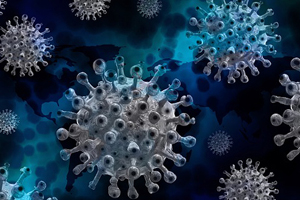
Wednesday November 25, 2020 | VICTORIA, BC [Update 9:25 pm November 25, 2020 | Reposted November 28, 2020]
by Mary P Brooke, B.Sc., editor | Island Social Trends
The pandemic rages on, capturing the essence of 2020 in its claws. We’re already hearing and using terms like ‘COVID fatigue’, and perhaps finding ways that we’re either finding the public health protocols to be routine (such as carrying an assortment of face masks in our bag) or tiresome (slipping on the physical distancing protocols occasionally).
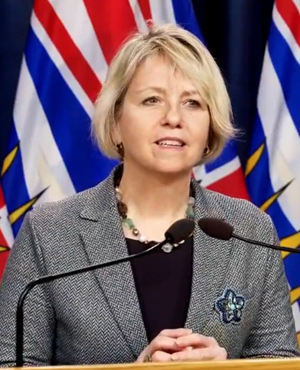
Today Provincial Health Officer Dr Bonnie Henry said that the COVID-19 pandemic “is putting a strain on all of us”. As all the requirements of protocols and the impacts on people’s lives, jobs, schooling and daily routines grinds on, she asks people to have compassion and are for ourselves, our families and others.
Today another 13 people died in BC as a result of the COVID-19 infection (all on the lower mainland — 11 in Fraser Health and two in Vancouver Coastal Health). That’s the record number of deaths so far in BC, for one 24-hour period.
Now 371 people have died because of the virus in BC. These are loved ones. The grieving is additional difficult under physical distancing protocols, but also under the psychological impact of this being an unexpected source of health impact, leading to a fairly sudden death.
“This is serious business, awful for families and caregivers,” said Health Minister Adrian Dix today.
Contact tracing ramps up further:
The original target in BC (back in August) was to hire 500 more contact tracers. Now that target is up to more than 1,200 new personnel in that health-care role, said Dix today. He says there have been 935 more hires since the original announcement, with 399 in the interview phase and 109 in the offer process.
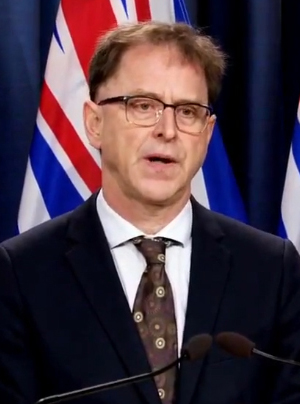
As well, the federal government has provided the equivalent of 17 full-time-equivalent contact tracers “who will start shortly”. Those numbers are in addition to the BC hires (as noted above).
Vaccines in the new year:
The hopeful part of Dr Henry’s session with media today was that she fully expects vaccines to start rolling out in BC in January. Those will be the Pfizer vaccines, the ones that require -70°C storage temperatures and a process of reconstitution under presumably strict conditions. The powerful freezers have been ordered but haven’t arrived yet.
Those technical challenges will be part of the upcoming decision-making on who gets the vaccine, as in proximity to where the freezers can be located. Which target populations will be near the chosen locations(s)?
High on the priority list for target populations will be seniors and personnel in long-term care, as well as health-care staff in hospitals and other areas where there is interface with the public or potentially the virus (such as vaccine clinics and test labs).
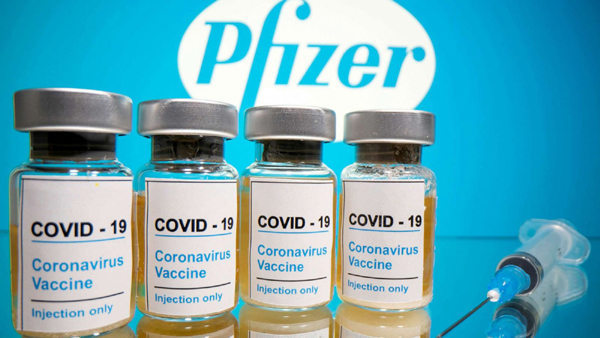
As well, the priority is to keep society running. Dr Henry outlined how a priority is to keep workplaces open, keep schools open, and try to ensure that the hospital system is not overwhelmed.
Dr Henry says the federal government will also be deciding “how much each province is going to get”. The Pfizer vaccine comes 975 doses per tray before being reconstituted (essentially diluted) into more doses, she told media today.
Processes are still underway to determine and assure the safety of the vaccine. But it’s still too early to tell about the efficacy of the vaccine — i.e. its capability to produce immunity; that will only come after people start receiving vaccines.
There are other vaccines that require simpler temperature controls. The Moderna vaccine can be transported at around -10°C and similarly the AstraZeneca vaccine.
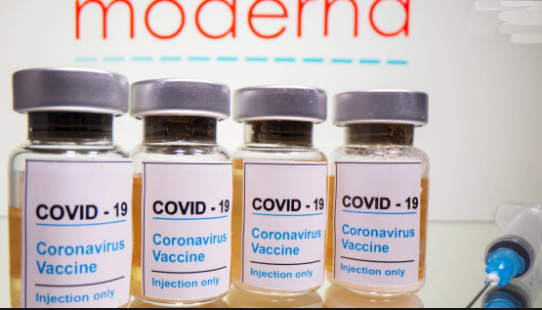
All the vaccines pre-ordered by Canada are coming from countries beyond our borders. This creates a realistic overlay of anxiety, which Dr Henry stated forthrightly today, referring to the concern as “reliance on offshore manufacturing”. She says that Canada is expecting the “contracts to be honoured”.
“In the first week of January they (the manufacturers) will be ready to deliver the Pfizer and Moderna vaccines,” said Dr Henry this afternoon. She notes that Health Canada still needs to approve the vaccines for use after they arrive in this country; she hopes it will be a “more rapid process” than presumably what is usual.
“I spent most of Sunday talking about it with colleagues across the country,” said BC’s top doctor about the whole process of receiving the vaccines, awaiting approval of the products, and how they will be distributed in an ethical manner (i.e. who gets them first). She says that public health will “follow the process, and be ready”.
“To keep Canadians safe, we need access to as many potential vaccines and treatments as possible,” Trudeau said during his media address on Tuesday November 23.
There could be some question as to how skilled the negotiation process was between Canada and the companies that are producing vaccines (Pfizer, Moderna and AstraZeneca in the current case of apparently successful products), as in not thinking ahead to request vaccine product at the same time as it would be delivered in those companies’ home countries. Or maybe they did try, and met with territorialism. So much for globalism.
Reassessing at December 7:
Meanwhile, the orders continue about mandatory use of masks in all indoor public spaces as well as no gatherings (socializing only with one’s own household), and all those protocols for physical distancing, hand washing, and staying home if sick. For all of BC the orders are in place through Monday December 7, 2020.
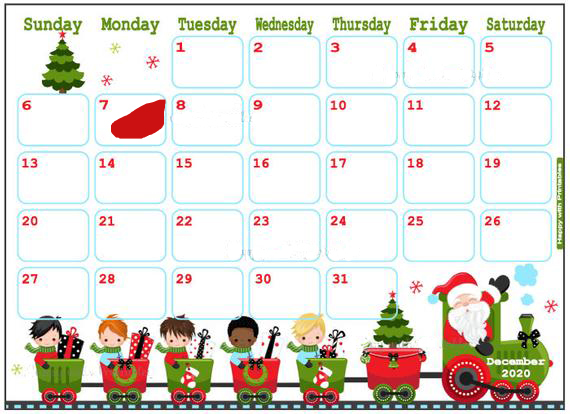
“By December 7 we will know what we need to do from there,” said Dr Henry, as in seeing how the case counts and transmission rates are coming along. She is, of course, hoping for a more flattened curve than we’ve seen in the past week with record daily case counts and generally more transmission in all areas of the province. [Note: some of the daily case-count numbers — and their filtration into the age categories and other analysis — will change slightly in stats this week. That’s due to a data correction required from some computer system interfaces that went slightly awry.]
It’s a sobering winter ahead for Canadians, many of us already fatigued by the continued attention to public health protocols and the social, economic, emotional, physical (day by day), and mental strains it has put on our lives. But we soldier on. Today Dix asked, once again, for “everyone to remain all in” in the fight against COVID-19.
The BC case profile:
Dr Henry announced a data correction in Fraser Health Region numbers — due to an error in data transfer from lab to health authority — which changes the daily count for November 17 to 24.]
The full year COVID tally in BC to date is now 29,086 test-positive cases (169 in Vancouver Coastal, 443 in Fraser, 21 on Vancouver Island, 70 in the Interior, and 35 in the north); presently 7,616 cases are active.
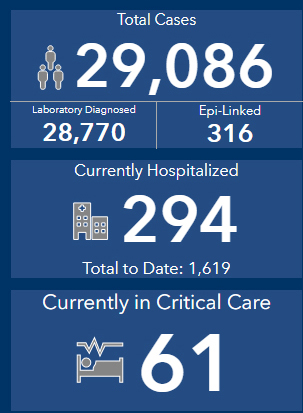
There are 294 (+10 compared to yesterday) people in hospital, with still 61 in intensive care (same as yesterday). This number of hospitalizations puts a strain on health-care system resources (personnel and facilities). In the pandemic to date, 1,619 people have been hospitalized due to COVID.
Presently 10,270 (-13 since yesterday) people are in isolation due to exposure to a known case of COVID-19.
Vancouver Island COVID profile:
Most new cases continue to be in the BC lower mainland area (Vancouver Coastal Health and Fraser Health) but even on Vancouver Island the previously low level of transmission has shifted upward.
Today there were 21 new cases on Vancouver Island (yesterday it was ‘only’ 11). That brings the total active cases on the island to 173, and the overall total cases to 526 (regional distribution of 49 in south Vancouver Island, 109 central, and 15 north).
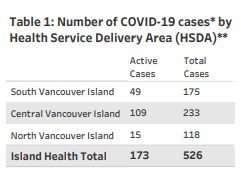
Currently, three COVID patients are in hospital (up from two yesterday, yet the same as last Friday), but with no one in intensive care.
Outbreaks:
There are currently seven schools with outbreaks on Vancouver Island (in Nanaimo, Ladysmith, Qualicum Beach and Victoria). There have recently been two exposures at restaurants/pubs (Nanaimo and Victoria), one of which is now over (only Irish Times Pub in Victoria is still listed). There are two active outbreaks in long term care (Port Alberni and Campbell River).
Rapid-testing for COVID:
Presently in BC, the strategy is still to use precious testing resources where there are known exposures or active cases. If there are cases in long-term care then everyone is tested. Otherwise, asymptomatic people are not tested.
Rapid-testing (as being used in other provinces) is still not all that reliable, said Dr Henry today. But from the federal government BC has now received 131 machines for the rapid-testing process and 27,000 tests. BC has also received 500,000 of the bio-antigen tests (strips of paper where a line changes colour if there is a positive result). Both of these tests still require that a nasopharyngeal test be done, to confirm positivity.
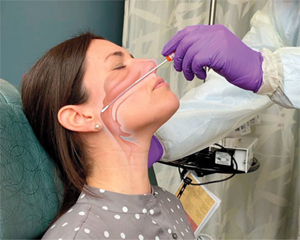
The gargle and spit test (largely targeted for use by children) is not as reliable as the uncomfortable but more reliable nasopharyngeal test, says Dr Henry.
COVID test results are available online and can be texted to people as well.
===== OVERALL COVID PORTALS (BC Government):
BC’s response to the COVID-19 pandemic. COVID guidelines, orders, economic recovery, employment, quarantine, K-12, indigenous, health information, request or donate supplies, etc.
Province-wide restrictions during the COVID pandemic in BC (current restrictions to December 7, 2020). These could be extended.

COVID LINKS – PHO, BC CDC and more (BC Government)
For more details on the provincial health officer’s (PHO) Nov. 19 orders, visit: www.gov.bc.ca/covid19
November 12 modeling update:
http://www.bccdc.ca/health-info/diseases-conditions/covid-19/modelling-projections
For the PHO’s orders, visit:
https://www2.gov.bc.ca/gov/content/health/about-bc-s-health-care-system/office-of-the-provincial-health-officer/current-health-topics/covid-19-novel-coronavirus
To see a map of COVID-19 cases by local health area, visit: http://www.bccdc.ca/health-info/diseases-conditions/covid-19/data
If you are experiencing symptoms, find a collection centre near you to get tested: http://www.bccdc.ca/health-info/diseases-conditions/covid-19/testing
For mental health and anxiety support, visit: www.bouncebackbc.ca
Or: www.anxietycanada.com
For a listing of the community exposure events:
- BCCDC (flights, work sites, etc): http://www.bccdc.ca/health-info/diseases-conditions/covid-19/public-exposures
- Fraser Health: fraserhealth.ca/covid19exposure
- Interior Health: https://news.interiorhealth.ca/news/public-exposures/
- Island Health: https://www.islandhealth.ca/learn-about-health/covid-19/outbreaks-and-exposures
- Northern Health: https://www.northernhealth.ca/health-topics/outbreaks-and-exposures
- Vancouver Coastal: http://www.vch.ca/covid-19/public-exposures
For the latest medical updates, including case counts, prevention, risks and testing, visit: http://www.bccdc.ca/
Or follow @CDCofBC on Twitter.
For non-health related information, including financial, child care and education supports, travel, transportation and essential service information: www.gov.bc.ca/covid19
Or call 1 888 COVID19 (1-888-268-4319) between 7:30 a.m. and 8 p.m. (Pacific time), seven days a week.
For the latest videos and livestreaming of COVID-19 media availabilities, visit:
Facebook: www.facebook.com/BCProvincialGovernment/
Twitter: https://twitter.com/BCGovNews
YouTube: www.youtube.com/ProvinceofBC


